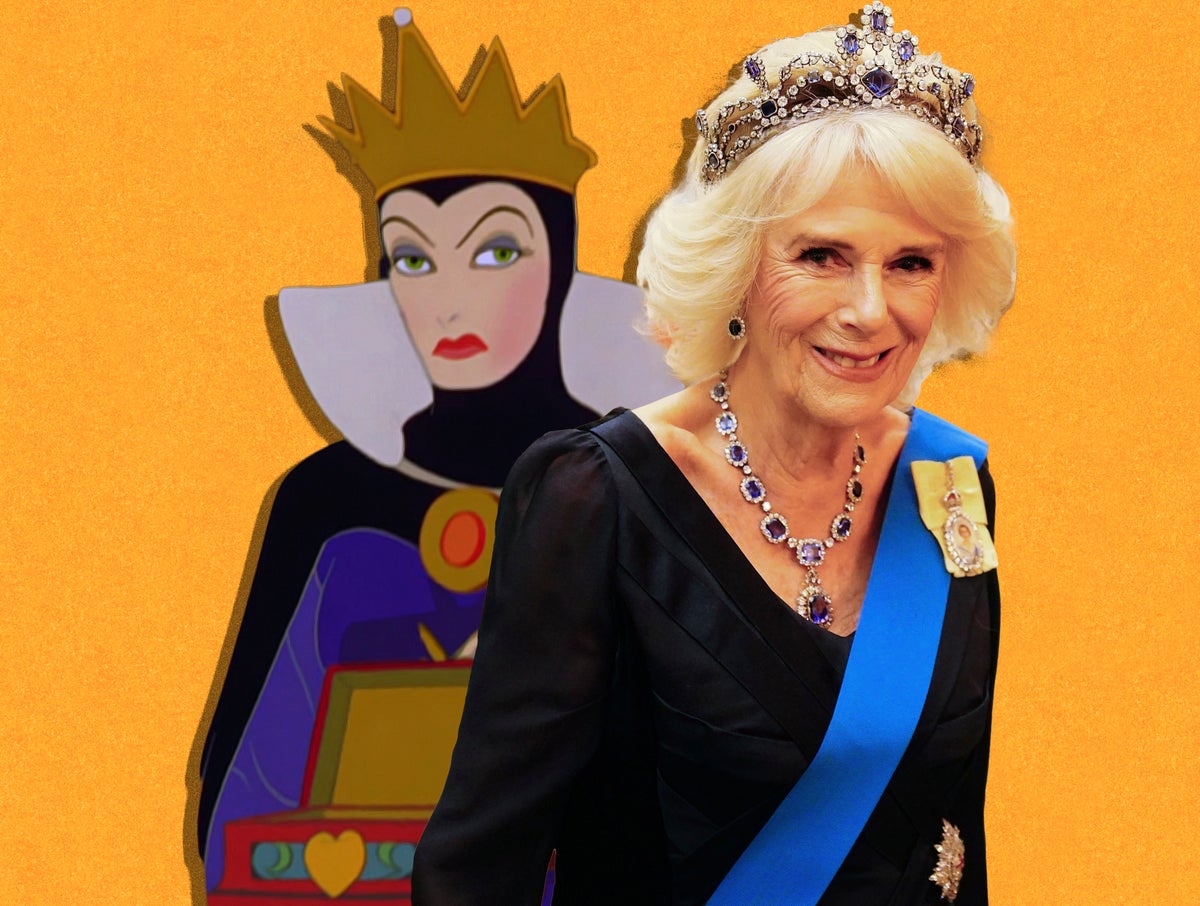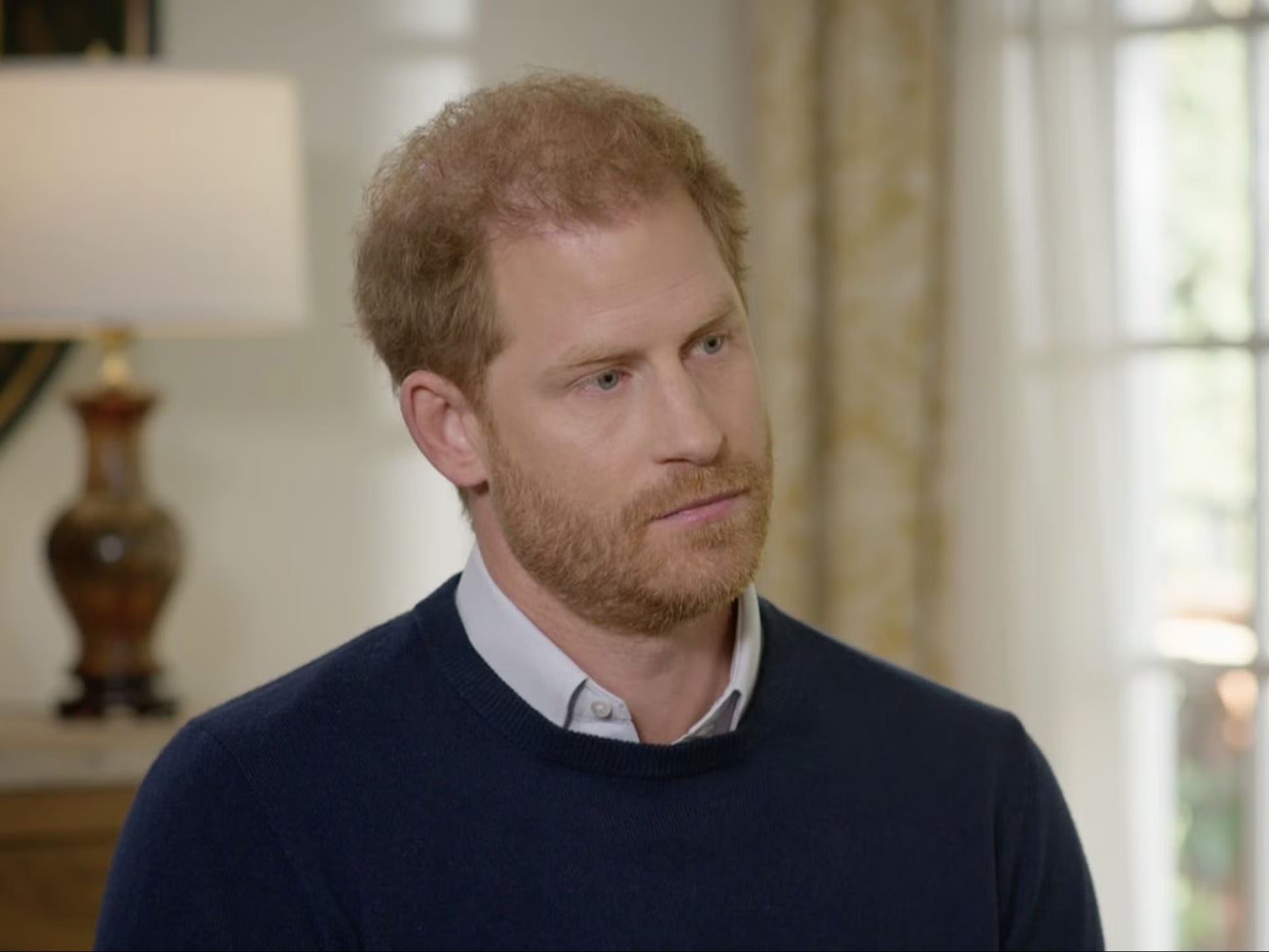
You can recognise her instantly. Her face will be angular, her body towering. Her clothes will be lavish, her jewellery ostentatious. Her expression will be smug, her smile superior. Most of all, though, you’ll notice her personality. For she’ll be absolutely vile, a combination of humanity’s very worst traits, ranging from jealous and vindictive to downright malevolent. I’m talking, of course, about the wicked stepmother.
For anyone who’s ever read a fairytale or watched a Disney film, the trope of the wicked stepmother hardly needs an introduction. Nonetheless, it seems we may need to be reminded of the sexism attached to it, with the trope very much alive and well in 2023 thanks to Prince Harry’s tell-all memoir, Spare, and the discussion it has sparked about his own stepmother, Camilla the Queen Consort.
The trope itself dates back to ancient Rome, with Livia Drusilla – the second wife of Emperor Caesar Augustus – portrayed as a ruthless, conniving, and power-hungry figure in Tacitus’s version of Roman history. The depiction was cemented in Robert Graves’s 1934 novel, I, Claudius. But the most famous wicked stepmothers are those created by the Brothers Grimm, with variations on the character appearing in Cinderella, Snow White, and Hansel and Gretel. In all three stories, she is a vain, envious, and power-obsessed Lady Macbeth-like figure hellbent on antagonising the younger heroine. Initially, when the stories were created, the wicked female characters were mothers, claims Maria Tatar, an expert on German folklore at Harvard University.
“They found it supremely satisfying to preserve the sanctity of motherhood,” she explains. “Typically, this was done by having the ‘good’ mother who had died, and the ‘bad’ mother, who had married into the family.” Another reason they were so popular in Grimms is because, in the early 19th century, many women did not survive childbirth. “Maternal mortality was really high,” added Tatar. “It was common for men to remarry.”
Regardless of its origins, the wicked stepmother soon became an integral part of popular culture, breaking out of the fairytale realm and its cinematic re-imaginings (A Cinderella Story; Mirror Mirror; Ella Enchanted) and finding its way into films like The Parent Trap, Nanny McPhee and In Her Shoes. Yes, these are all just characters in fictional stories, but their lessons spread far into reality. They contribute to oppression. After all, what better way to silence a woman than by branding her evil, ugly, or mad, as wicked stepmothers often are?
This becomes evident when you take a closer look at some of the aforementioned characters. Take Snow White, for example. “In the Disney version, the evil Queen (Snow White’s stepmother) is also the most interesting character in the film,” says Tatar. “When we see her underground lair, she is surrounded by books and scientific artifacts.” Perhaps it’s no coincidence that the women with power in these stories are so often ostracised by society.
As for where Camilla sits in all this, it’s complicated. In the book, Harry recalls his fear that she would be cruel to him “like all the wicked stepmothers in storybooks”. He claims that she converted his bedroom into her own personal dressing room as soon as he moved out of Clarence House. He goes on to allege that Camilla worked with the press to salvage her public image as “the other woman” so that she could eventually marry Charles and become the Queen Consort. So a boilerplate wicked stepmother trajectory.
He writes that Charles and Camilla’s “spin doctor” decided to throw Harry “right under the bus” by leaking stories about his drug use in 2002. “I had complex feelings about gaining a step-parent who, I believed, had recently sacrificed me on her personal PR altar,” he writes. “In a funny way, I even wanted Camilla to be happy. Maybe she’d be less dangerous if she was happy?”
Of course, he is accusing his father of wrongdoing here, too. But it’s the singling out of Camilla – and branding her “dangerous” – that has struck people the most. Hence why Harry has been asked about it in all of his TV interviews promoting the book. Speaking to Anderson Cooper this week, he called his stepmother “the villain” and explained that she needed to rehabilitate her image in the eyes of the British public following Diana’s death. “With a family built on hierarchy and her on the way to being Queen Consort, there were going to be people, or bodies, left in the street because of that,” he said.
Speaking to ITV’s Tom Bradby, Harry made further claims that Camilla leaked one of her early conversations with William to the press – The Telegraph later reported that it was actually her assistant who leaked the conversation and that she was subsequently fired. Meanwhile, speaking to Good Morning America, Harry clarified that he didn’t see the Queen Consort “as an evil stepmother” before proceeding to list a series of allegations about her leaking stories to the press.

One of the reasons why this is so complex is that we haven’t heard Camilla’s side of the story – and it’s unlikely we ever will. She, of course, might very well be responsible for leaking stories to the press. And perhaps, as Harry claims, that was all part of a wider attempt to ascend the royal chain of command and sit proudly alongside the future King – though Camilla’s biographer has claimed that she while there was a campaign to get her accepted by the general public, “it’d be entirely wrong to say it was she who inspired or promoted it”.
The other key issue is that Camilla is said to be friends with Jeremy Clarkson and Piers Morgan, both of whom have relentlessly criticised the Duchess of Sussex, with Clarkson writing in The Sun that he hated Meghan “on a cellular level” and wanted people to “throw lumps of excrement” at her. Harry referenced the article in his conversation with Bradby. In a comment that many took as a subtle dig against Camilla, who has done ample philanthropic work in the violence against women sector, Harry said: “To use my stepmother’s words recently as well, there is a global pandemic of violence against women.”
It’s not yet clear where we should stand when it comes to Camilla, but it is important to reject a stereotype when we’re confronted with one. The wicked stepmother trope perpetuates the most toxic myths about female behaviour and family dynamics, and serves as a cheap shot to an unenviable position for someone to be in – a family doesn’t have to be half as dysfunctional as the Windsors for it to be incredibly hard to marry into a pre-existing unit. So let’s try to judge Camilla on her own terms, and not on Disney’s.







